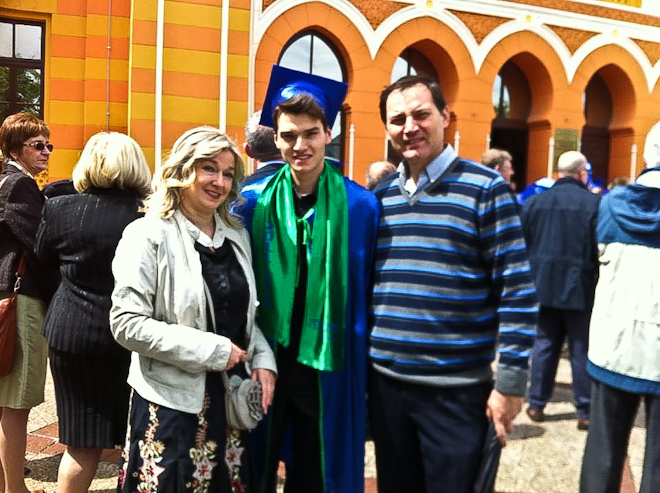Video by: Olivia Centeno, UWC Mostar, Class of 2024 from Spain
Parents
Making the decision to send a child away to a UWC for the next two years can be a challenging time for parents as well as the student.
There are many issues that your child will face as they leave home, probably for the first time, and enter a world that empowers them toward independence. UWC Mostar is supportive, but also asks students to take on a lot of responsibility: students face issues of time management, from preparing for exams to doing laundry; from accommodating a roommate with different sleep habits to learning to speak with teachers in a way that is more equal than typical for many societies; not to mention the normal challenges of personal development in the late teenage years. While they will be busy and surrounded by friends, many students experience homesickness in some way or another. If this comes up, reassure your child that those feelings of missing familiar surroundings, routine, family and friends are perfectly normal. The experience of going away to school has a certain rhythm: initial excitement or positive intensity, usually lasting the first two to four weeks, then a drop to what might be labeled homesickness.
Generations of UWC parents have asked these questions: Will he/she be safe? Will he/she eat right? Do they have medical care? Will my child commit to his or her studies? The simple answer is: yes. There are a number systems we have in place to support your children:
-
The IB: The International Baccalaureate is an internationally recognized, rigorous, and demanding secondary school diploma program. Our teachers are experienced — nearly half are IB examiners — and will support your child through their academic growth.
-
Residences: The UWC Mostar offers three student residences, on different sides of the River Neretva. The students share a room with at least one other student of the same gender, as is the standard practice in all other UWC colleges, in part of a house shared by UWC students, volunteers and in some cases, teachers.
-
House Parents and House Fellows: Students in the residences are supported and supervised by “House Moms,” either full time residential parents or faculty who live in or adjacent to the residence. House parents are members of staff whose job is to care for students. They can go to their house parent for help whenever they need it. Some house parents also teach at the school. Additionally, “House Fellows,” faculty members who do check-in during the week and weekends on rotation, are an important part of residential life and pastoral care.
-
Teachers: Teachers are here to inspire students in classes and give as much academic support as they need. Teachers additionally show movies in the residences, hold study sessions, or come by for meetings with students. Every student is assigned one teacher as a “tutor” as well, who you are encouraged to correspond with about any issues related to your child’s experience in Mostar.
-
Medical care: Medical services in UWC Mostar are provided by a school nurse. The school will arrange for student to be registered with a doctor and any other healthcare providers as appropriate.
